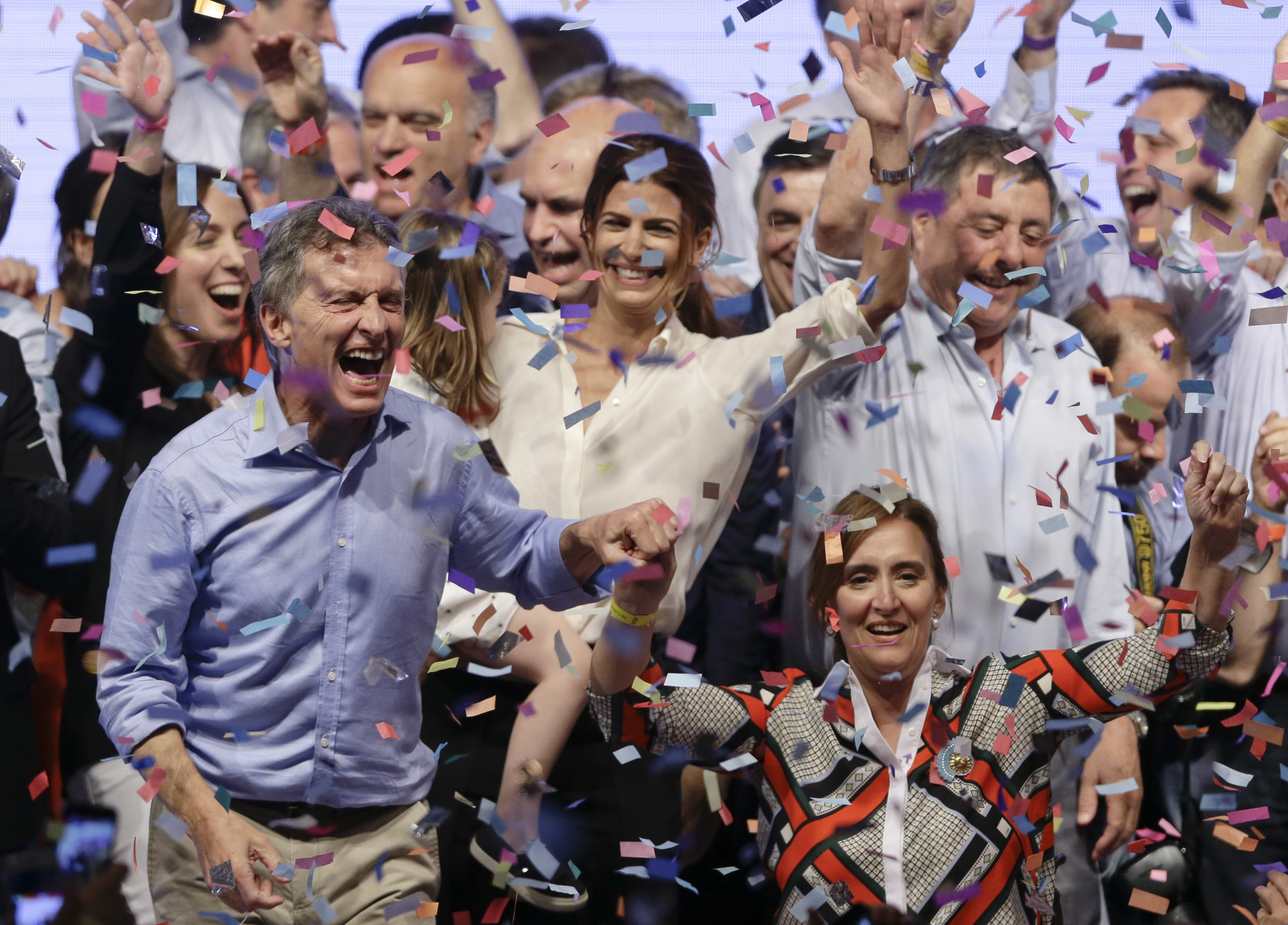What Argentina's big election really means
Argentina's new president is hardly the conservative reformer he's made out to be


Argentina just wrapped up a historic presidential election. After being dominated by the Kirchner family for a decade, Argentina is getting a new president: the right-wing Mauricio Macri.
If you've read about the news, you've probably been told that it represents a new direction for the country, even a sea change. This is only half-true.
The half that's true comes from the fact that the Kirchners have been a nightmare. On the eve of World War I, Argentina was one of the wealthiest countries in the world, growing faster than the United States and with a per capita income on par with France and Great Britain. Today that is...not the case. In 2014, the IMF ranked Argentina 55th in the world in terms of per capita income on a purchasing power parity basis, behind such economic powerhouses as Kazakhstan and Malaysia. The country has gone through tremendous upswings and downswings, but the overall culprit has been the combination of political instability driven by military coups, and a tradition of populism known as Peronism that combines wasteful social spending, ill-advised anti-market policies, and general crony capitalism and corruption.
The Week
Escape your echo chamber. Get the facts behind the news, plus analysis from multiple perspectives.

Sign up for The Week's Free Newsletters
From our morning news briefing to a weekly Good News Newsletter, get the best of The Week delivered directly to your inbox.
From our morning news briefing to a weekly Good News Newsletter, get the best of The Week delivered directly to your inbox.
After a wave of modernization in the 1990s, Argentina had a massive default on its debt and had to peg its currency to the dollar, leading to an economic crisis. After the crisis was blamed on "the market" and on market forces — nevermind that a currency peg is not exactly a "free market" policy — the Peronists were whisked back into power. Argentina's crisis could have been short-lived had the Kirchners not done everything in their power to prevent it. Bad policies under Nestor soon gave way to bad policies mixed with propaganda, paranoia, and authoritarianism under his wife Cristina, whose answer to high inflation was to make reporting accurate inflation figures illegal, and who would blame her political missteps on shadowy conspiracies.
So, in that sense, throwing out the Peronists is good news.
But to paint Mauricio Macri as a "conservative," a "reformer," or even "pro-business," as the world's business press breathlessly proclaims, only tells half the story. Macri, scion of a wealthy Argentinian family, is "pro-business" in the sense that as the longstanding mayor of Buenos Aires, he allegedly gave a lot of public contracts to his friends and allies. That's one way of being "pro-business," but it has little to do with what Argentina actually needs, which is a clearing of corruption, favoritism, and the boneheaded policies — both of the populist and corporatist kind — that have prevented Argentina's economy from being a level playing field.
Instead, Macri has been implicated in several corruption scandals and has been accused of using Buenos Aires police resources to tap the phones of political opponents. He hardly seems the "conservative reformer" that Argentina truly needs.
A free daily email with the biggest news stories of the day – and the best features from TheWeek.com
What's more, he probably won't be able to bring lasting change (his coalition was called "Let's Change") to Argentina's divided system of government, modeled on the United States, where he has to deal with a Congress that can just tell him to buzz off if it doesn't want to pass the laws he wants. No, Macri doesn't have a majority in Congress. Americans will have some idea of how that goes.
But still, Macri's election is good news nonetheless, for a very simple reason. For all the corruption, for all the conspiracy theorizing in which Argentine politics marinate, there are Argentines alive who remember the country's military coups and dictatorships. Last week, Argentina had an election; the incumbent party lost, the opposition won, and there were no shots fired. And that alone is worth celebrating.
Pascal-Emmanuel Gobry is a writer and fellow at the Ethics and Public Policy Center. His writing has appeared at Forbes, The Atlantic, First Things, Commentary Magazine, The Daily Beast, The Federalist, Quartz, and other places. He lives in Paris with his beloved wife and daughter.
-
 What is at stake for Starmer in China
What is at stake for Starmer in ChinaToday’s Big Question The British PM will have to ‘play it tough’ to achieve ‘substantive’ outcomes, while China looks to draw Britain away from US influence
-
 How the ‘British FBI’ will work
How the ‘British FBI’ will workThe Explainer New National Police Service to focus on fighting terrorism, fraud and organised crime, freeing up local forces to tackle everyday offences
-
 The best family hotels in Europe
The best family hotels in EuropeThe Week Recommends Top kid-friendly hotels with clubs, crèches and fun activities for children of all ages – and some downtime for the grown-ups
-
 The billionaires’ wealth tax: a catastrophe for California?
The billionaires’ wealth tax: a catastrophe for California?Talking Point Peter Thiel and Larry Page preparing to change state residency
-
 Bari Weiss’ ‘60 Minutes’ scandal is about more than one report
Bari Weiss’ ‘60 Minutes’ scandal is about more than one reportIN THE SPOTLIGHT By blocking an approved segment on a controversial prison holding US deportees in El Salvador, the editor-in-chief of CBS News has become the main story
-
 Has Zohran Mamdani shown the Democrats how to win again?
Has Zohran Mamdani shown the Democrats how to win again?Today’s Big Question New York City mayoral election touted as victory for left-wing populists but moderate centrist wins elsewhere present more complex path for Democratic Party
-
 Millions turn out for anti-Trump ‘No Kings’ rallies
Millions turn out for anti-Trump ‘No Kings’ ralliesSpeed Read An estimated 7 million people participated, 2 million more than at the first ‘No Kings’ protest in June
-
 Ghislaine Maxwell: angling for a Trump pardon
Ghislaine Maxwell: angling for a Trump pardonTalking Point Convicted sex trafficker's testimony could shed new light on president's links to Jeffrey Epstein
-
 The last words and final moments of 40 presidents
The last words and final moments of 40 presidentsThe Explainer Some are eloquent quotes worthy of the holders of the highest office in the nation, and others... aren't
-
 The JFK files: the truth at last?
The JFK files: the truth at last?In The Spotlight More than 64,000 previously classified documents relating the 1963 assassination of John F. Kennedy have been released by the Trump administration
-
 'Seriously, not literally': how should the world take Donald Trump?
'Seriously, not literally': how should the world take Donald Trump?Today's big question White House rhetoric and reality look likely to become increasingly blurred
